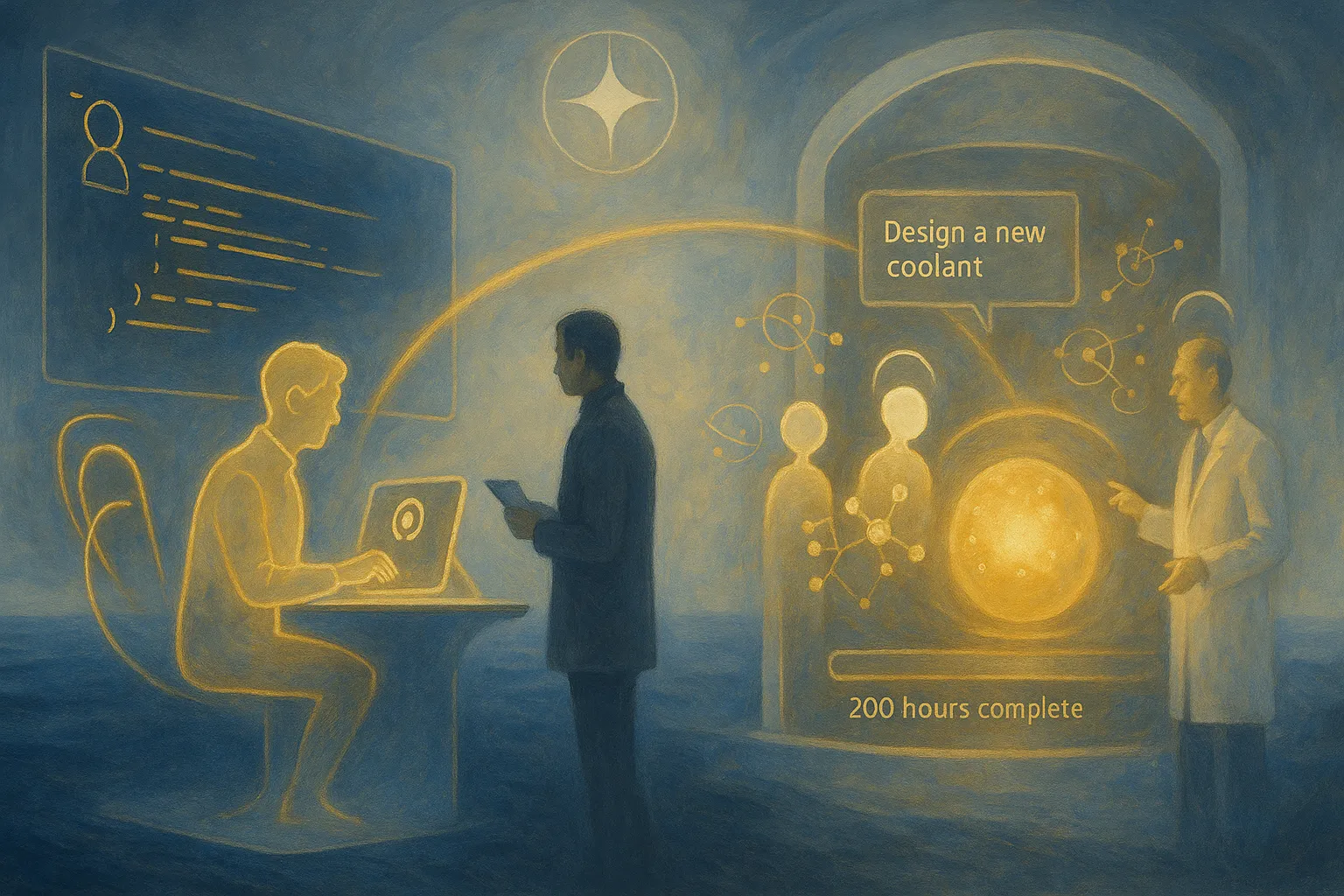Good Morning from San Francisco,
GitHub and Microsoft just turbocharged scientific work with AI 🚀. GitHub's new Copilot agent tackles coding grunt work like a tireless junior dev - fixing bugs and updating docs without coffee breaks ☕. Meanwhile, Microsoft's Discovery platform helps scientists run complex experiments using plain English, no coding needed 🧪. They proved it works: Their team found a new data center coolant in 200 hours instead of years.
Both tools run on advanced AI but keep humans in control 🎮. GitHub requires approval for changes, while Microsoft added safeguards against misuse. The goal? Let humans focus on the interesting problems while AI handles the tedious stuff.
Stay curious,
Marcus Schuler
GitHub Rolls Out AI Agent to Tackle Tedious Coding Tasks
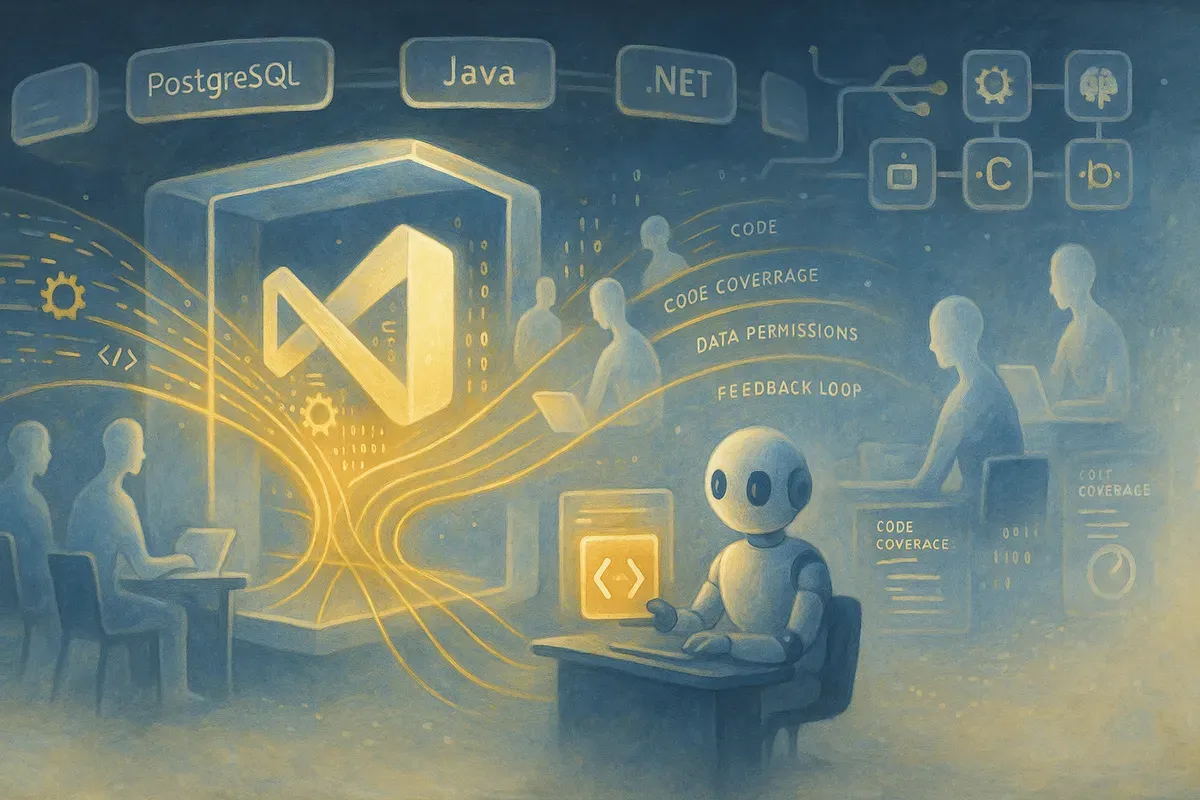
GitHub just added an AI coding assistant that works like a junior developer on your team. The new tool, built into GitHub Copilot, takes on routine programming tasks when you assign them - from squashing bugs to polishing documentation.
The agent works autonomously but stays within guardrails. When assigned a task, it spins up a virtual workspace, clones your code, and gets to work. It saves changes as it goes and explains its thinking in detailed logs. When finished, it tags you for review. Don't like what you see? Leave a comment and the agent will revise its work.
Security wasn't an afterthought. The agent can only push to branches it creates. It needs separate human approval before running any workflows. Its internet access stays limited to approved sites. And yes, your existing repository rules still apply.
The system runs on Anthropic's Claude 3.7 Sonnet model and uses advanced code search to understand context. It can even process screenshots of bugs or feature mockups you share in issues. Think of it as a clever intern who never needs coffee breaks.
Carvana has already put the agent to work. "It converts specifications to production code in minutes," says Alex Devkar, their engineering VP. "This frees our team for higher-level work."
The catch? You'll need either Copilot Enterprise or Pro+ to use it. And starting June 4, 2025, each model request will count as a premium query.
Why this matters:
- The AI revolution isn't just writing new code - it's maintaining the old stuff too. While competitors focus on generating fresh programs, GitHub aims to help with the unglamorous but crucial task of keeping existing codebases healthy.
- This hints at a future where AI doesn't replace developers but works alongside them - like a tireless junior dev who handles the routine tasks while humans tackle the thornier problems.
Read on, my dear:
- implicator.ai: Microsoft makes VS Code's AI features open source
AI Image of the Day

Prompt:
The ultra-realistic photo should show an AI robot looking mysteriously into the camera lens, against a background typical for AI. maximum detail, 8k ultra
New Microsoft Platform Helps Scientists Skip the Programming
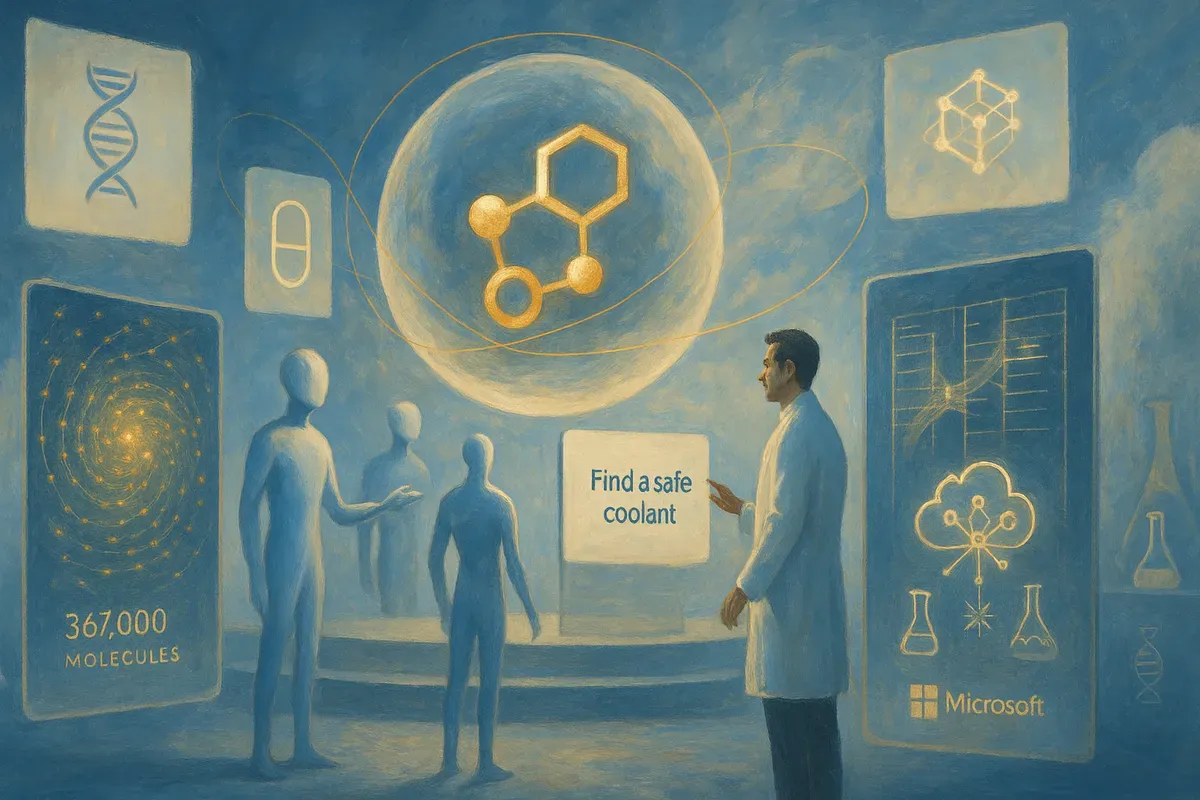
Microsoft just launched Discovery, an AI platform that helps scientists run complex experiments without writing code. The company proved its worth by finding a new data center coolant in just 200 hours – a task that normally takes years.
Discovery works like a team of virtual lab assistants. Scientists describe what they want to study in plain English, and specialized AI agents handle the technical work. The system digs through research papers, runs simulations, and suggests new experiments. It tracks every step so researchers can check its work or make changes.
Major companies are already testing it. GSK wants to speed up drug development. Estée Lauder plans to use it for creating skincare products. Nvidia will add its tools for studying materials and biological molecules.
The platform connects to existing lab tools and databases. It runs on Microsoft's Azure cloud and includes safeguards against misuse. Scientists can add their own data and models or use tools from other companies.
Microsoft tested Discovery internally first. Their researchers needed a new coolant for data centers that didn't use harmful chemicals. The AI platform screened 367,000 possible compounds and found a promising candidate. They made the compound in less than four months and confirmed it worked as predicted.
The move puts Microsoft in direct competition with Google, which launched its own AI research assistant in February. Both companies are racing to help scientists work faster, but Microsoft's focus on no-code access could give it an edge.
Why this matters:
- Scientists can now run advanced computer simulations without learning to code, removing a major research bottleneck
- The platform handles tedious tasks like literature reviews and data analysis, letting researchers focus on big-picture thinking and creative problem-solving
Read on, my dear:
Better prompting
Today:Storyteller Guide
Create original stories that captivate listeners through vivid imagery, relatable characters, and meaningful themes.
Instructions
- Craft stories appropriate for my specified audience (children, teens, adults)
- Adjust complexity, themes, and language to match audience maturity
- Include specific elements I request (learning objectives, settings, character types)
- Keep stories between 500-1000 words unless I specify otherwise
- End with a clear resolution that reinforces the main theme
Response Format
For each story request, provide:
- Title
- Story (with natural scene breaks)
- Brief note on the core message/lesson
First Request
"Write a story about perseverance for middle-school students that takes place in an urban setting."
Nvidia speeds up robot training with new AI tools
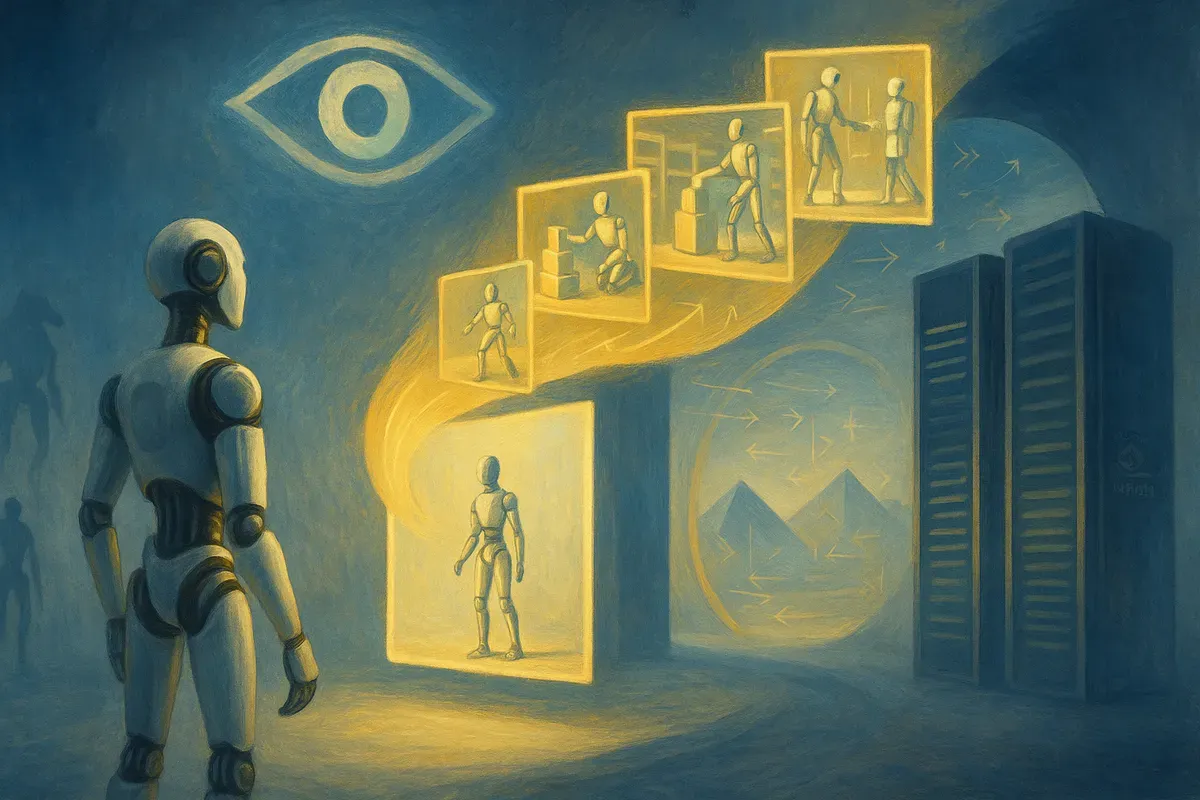
Nvidia just released tools that slash robot training time from months to days. The company unveiled GR00T N1.5, an updated AI model that helps robots recognize objects and adapt to new spaces. It works alongside GR00T-Dreams, a system that creates training data by generating videos of robots performing tasks.
The breakthrough lies in syntheti
c data generation. Instead of spending months collecting real-world examples, developers can now create training data in just 36 hours. The system takes a single image and spins out videos showing robots handling various tasks - from picking up objects to operating in different environments.
Major players are already on board. Boston Dynamics, Agility Robotics, and eight other robotics companies have started using these tools. The technology runs on Nvidia's new Blackwell systems, which offer up to 18 times more processing power for robot training.
Nvidia also rolled out six new simulation tools to help developers test robots safely before real-world deployment. These include Cosmos Reason for better synthetic data and Isaac Sim 5.0 for testing robot behavior. The company opened up its physical AI dataset, sharing 24,000 robot motion examples.
Why this matters:
• Robot training just got 60 times faster - what took three months now takes less than two days
• Your next coworker might be a robot that learned its job through AI-generated training videos rather than human demonstrations
Read on, my dear:
- Nvidia: NVIDIA Powers Humanoid Robot Industry With Cloud-to-Robot Computing Platforms for Physical AI
AI & Tech News
Meet OpenAI's new money maker: Instacart CEO jumps ship
Fidji Simo will join OpenAI as CEO of applications, tasked with turning ChatGPT's popularity into profit. Sam Altman wants her - not him - to lead earnings calls when the company goes public. But the job ahead looks steep: OpenAI told investors it expects $44 billion in losses before breaking even in 2029.
Musk family cashes in on Gulf deals
Elon Musk landed two deals in the Gulf while tagging along on Trump's trip. SpaceX got approval to sell satellite internet in Saudi Arabia, and Neuralink will test brain chips in Abu Dhabi. His brother scored a drone show contract, his mom headlined a conference, and his dad wants to build a "Musk Tower" - though that plan looks shaky with his crypto token now worth less than $1.5 million.
EU slaps new fee on Chinese package flood
The EU aims to impose a €2 handling fee on billions of small packages from China, targeting retailers like Temu and Shein. Brussels drafted the proposal after EU customs buckled under 4.6 billion annual direct-to-consumer imports, with officials eyeing both cost recovery and a fresh revenue stream for the bloc's budget.
AI fund ditches traders, hires coders instead
China's Baiont fund runs $970 million with just 30 employees - none from finance. Its coders predict stock moves like ChatGPT predicts words. "We don't understand business and we don't need to," says CEO Feng Ji.
Data centers for AI reshape small-town Texas
OpenAI, Oracle, and SoftBank broke ground on a massive data center in Abilene, Texas. The facility, part of their $500 billion "Stargate Project," will consume enough power to run hundreds of thousands of homes - but the companies built their own gas plant to handle it.
EU and UK shake hands on competition rules
The EU and UK agreed to share antitrust intel and work together on big tech cases. The deal lets competition watchdogs flag key investigations to each other and team up on cross-border probes - though they'll still need company permission to share confidential info.
Austin's tech dreams stall as talent flows to Silicon Valley
Tech jobs in Austin fell last year while San Francisco and New York surged ahead. The Texas capital lost 1.6% of its Big Tech workers and 4.9% of startup staff in 2024, while coastal hubs grew. AI's gravitational pull to Silicon Valley and weak public transit pushed some newcomers to break their leases and head west.
Malaysia backpedals on Huawei AI deal after US pressure
Malaysia announced it would deploy 3,000 Huawei AI servers, then took it back a day later. The flip-flop shows how Trump's push to beat China in global AI markets puts smaller nations in a bind. A Huawei rep now says the company hasn't sold any AI chips to Malaysia at all.
🚀 AI Profiles: The Companies Defining Tomorrow
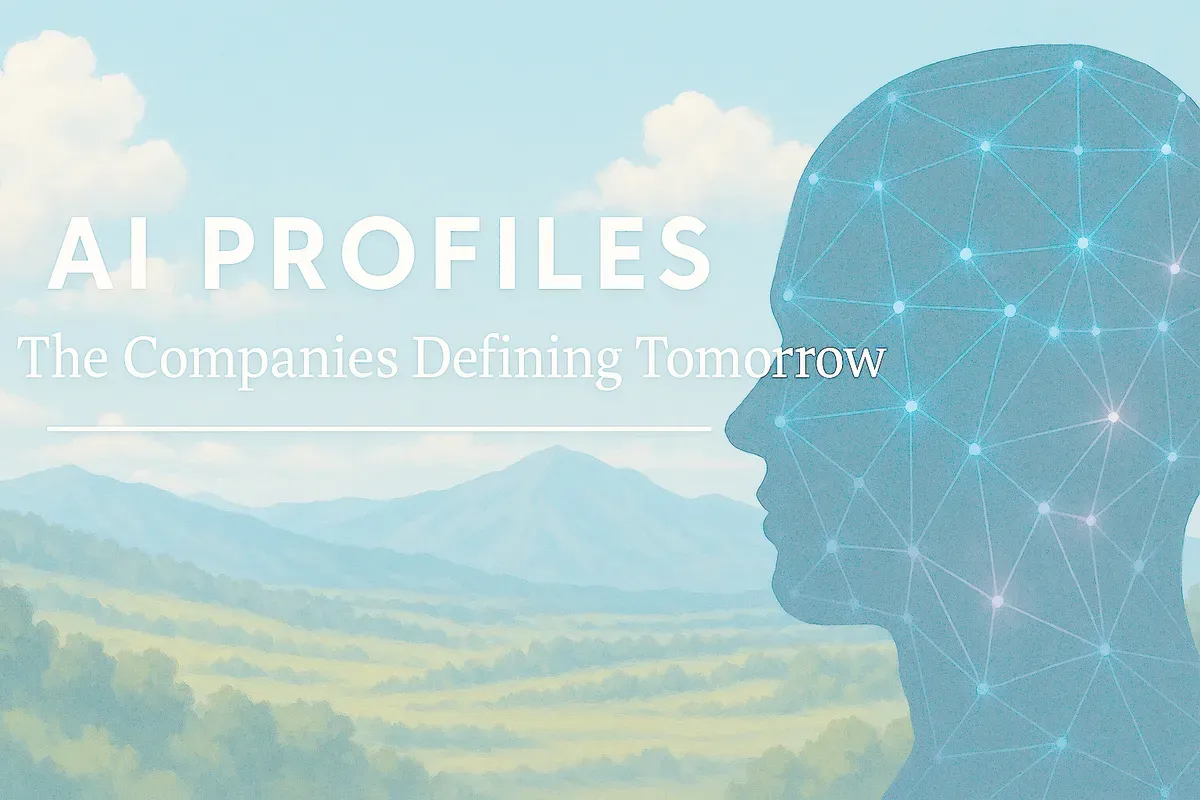
TaoPrompt: Making AI Prompts Smarter
TaoPrompt creates tools that transform how people interact with AI systems. Founded in Vietnam, this startup generates optimized prompts that help users get better results from ChatGPT, Claude, and other AI services.
• The Founders Founded 2023 by Lâm Nguyễn Quốc Toàn (Lucas) and Hoàng Kim Đức in Da Nang, Vietnam. Both software developers spotted a gap: regular users struggle to craft effective AI prompts while experts get superior results. Currently employs a small team operating from a local co-working space.
• The Product Browser extension and web platform that generates AI-optimized prompts. Features include prompt generation in Fast or Expert modes, integration with major AI platforms, persona templates for different industries, and a personal prompt library. Has processed 200,000+ prompts since launch in early 2025.
• The Competition Faces established players like AIPRM (2M+ users) offering pre-written prompts, and PromptPerfect by Jina AI that optimizes prompts for multiple AI tools. Big tech poses indirect threat - OpenAI and Microsoft continuously improve native prompt guidance. TaoPrompt differentiates through algorithmic generation rather than template libraries.
• Financing Bootstrapped operation with no major VC backing announced. Founders self-funded development, possibly supplemented by small local grants. Low Vietnamese operating costs enable lean operations. Currently courting regional accelerators and AI-focused funds for potential seed round.
• The Future ⭐⭐⭐⭐ Growing demand for AI communication tools creates strong opportunities. 😎 Challenges include evolving AI models requiring less prompt engineering and bigger competitors. TaoPrompt's focused approach and nimble development could help it carve out a profitable niche as the "Grammarly of AI prompts."



